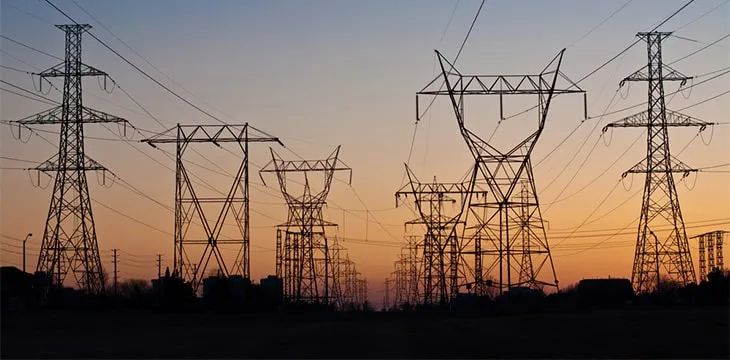|
Getting your Trinity Audio player ready...
|
Block reward mining company Xive has shut down its 2,500-rig facility in South Kazakhstan due to an insufficient electricity supply from the national grid.
The Center for Alternative Finance reports at the University of Cambridge lists Kazakhstan as the world’s second-largest digital currency mining country after the United States. Since September, the national grid operator KEGOC has been rationing out electricity due to a strained energy supply.
In October, state-controlled Russian energy firm Inter RAO announced it would export energy into Kazakhstan. The deal was made to shore up the nation’s energy supply to prevent severe power shortages during Kazakhstan’s cold winter when additional energy is needed to heat buildings and homes.
The central Asian nation has been grappling with electricity shortages partially caused by an influx of block reward miners fleeing China’s digital currency mining ban. Minister Murat Zhurebekov recently said in a press conference that block reward mining had created an 8% surge in energy demand on the national grid this year, whereas usually the electricity demand increases by 1% to 2% each year.
Now, this new energy crisis is forcing some block reward miners to move again.
“Sad to shut down our mining farm in south [Kazakhstan],” tweeted Xive Cofounder Didar Bekbau.
Little sad to shut down our mining farm in south KZ. Last container is ready to be sent. So much work, people, hopes are ruined. Country risk played out pic.twitter.com/J8ZMg6GeUI
— Didar (@didar_bekbau) November 24, 2021
Bekbau told news outlets that “it is clear that mining in south Kazakhstan is not possible anymore.” He continued stating that other BTC mining operators in the region are looking to move their machines to new sites since there are “no options” left in the country.
Kazakhstan government officials have been careful to appear friendly toward the block reward mining industry. Officials have declared they want block reward miners to develop more independent renewable energy capabilities.
Kazakhstan’s Ministry of Energy released a draft regulation that would cap the buildout of new mines to 100 megawatts, then later added that it would not restrict electricity to lawful mines provided it does not jeopardize the national grid.
Kazakh officials say that gray, or illegal, block reward mining operations are the real root of the nation’s energy woes, estimating that illegal mining farms may be consuming as much as twice the amount of electricity as registered farms.
Watch: CoinGeek New York panel, How to Achieve Green Bitcoin: Energy Consumption & Environmental Sustainability

 07-05-2025
07-05-2025 





